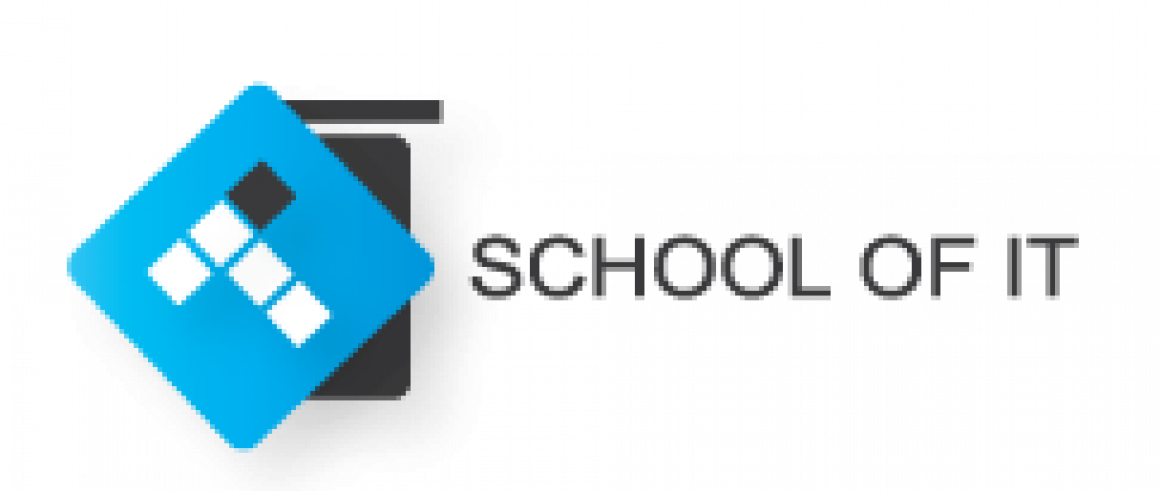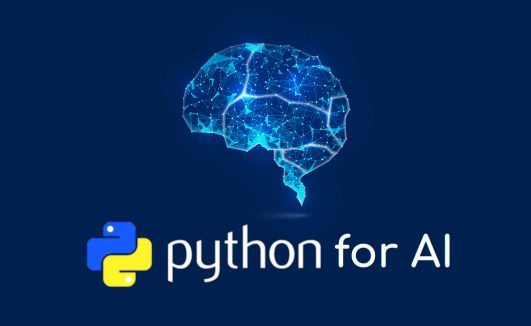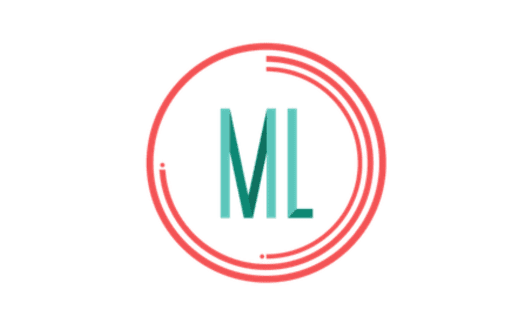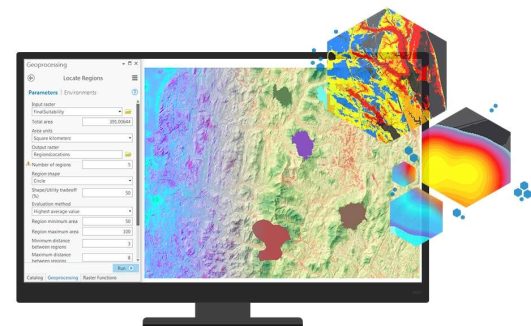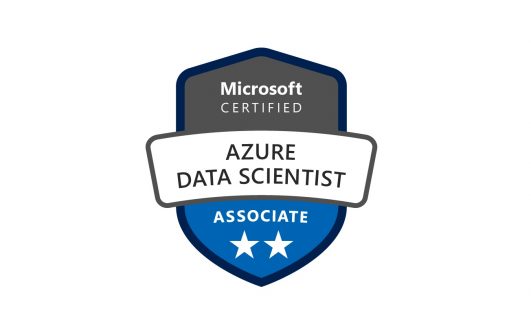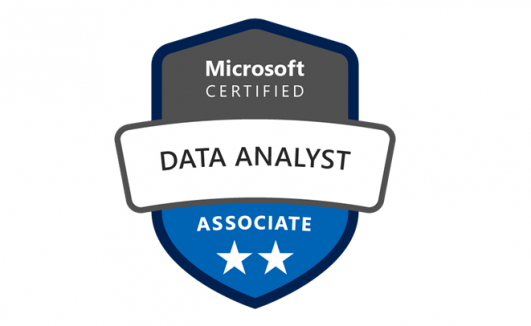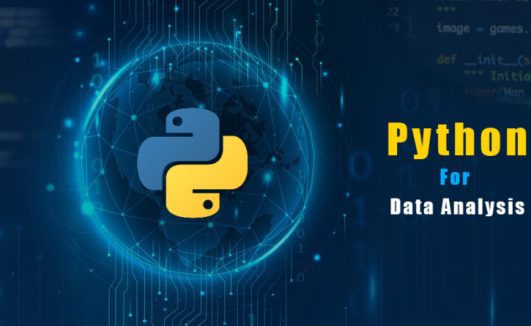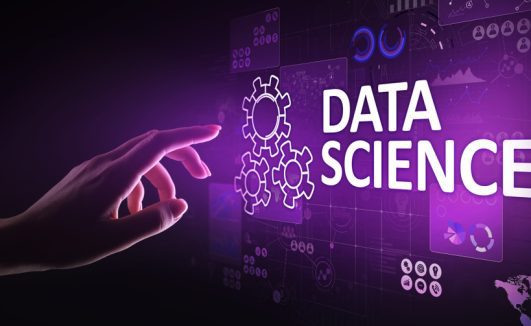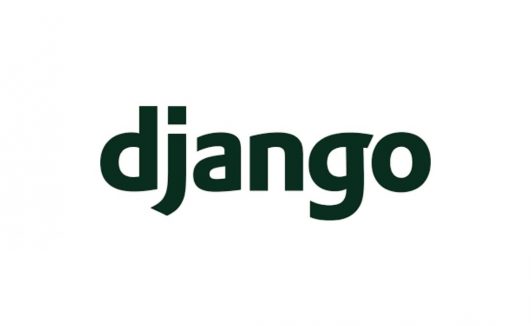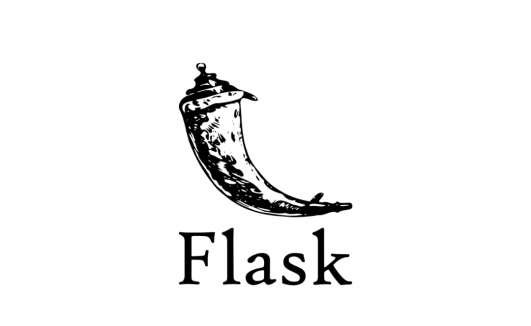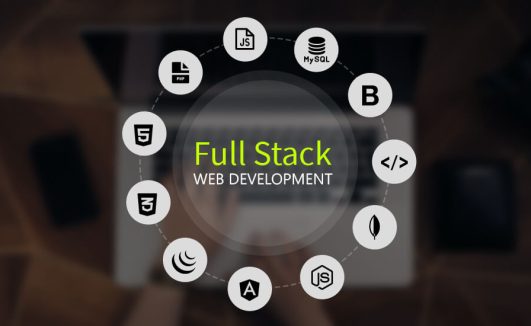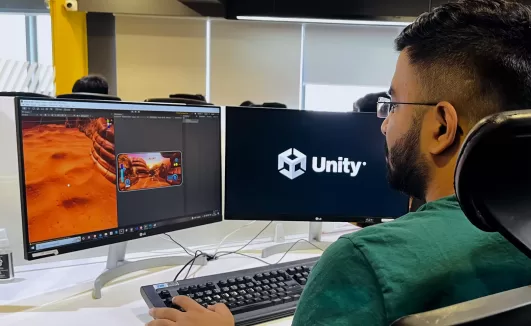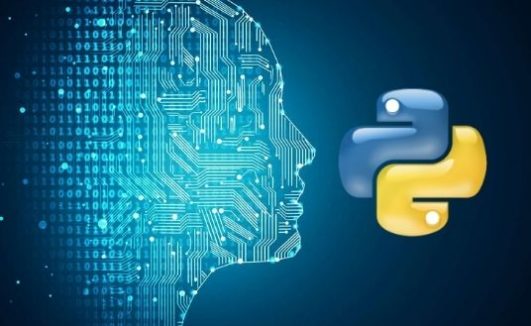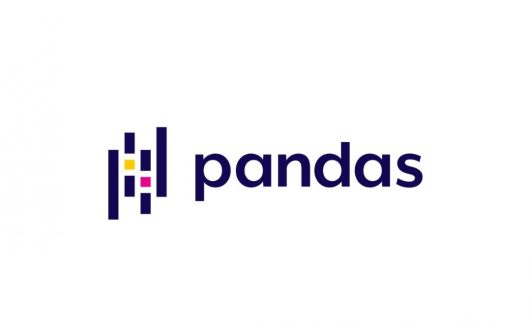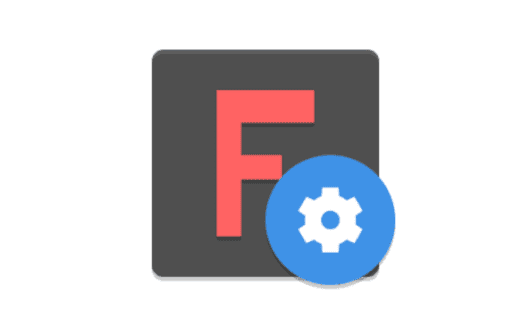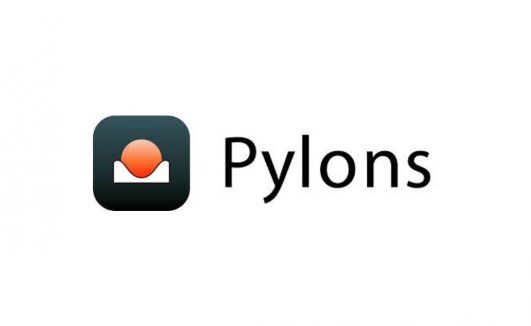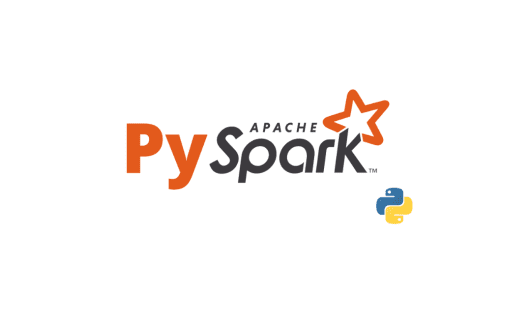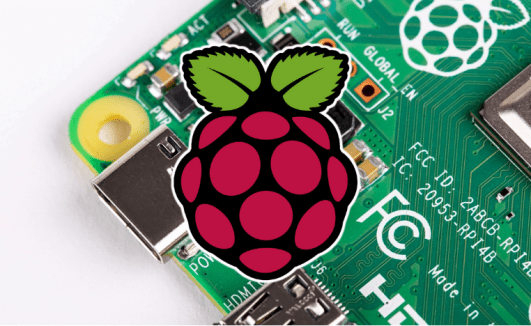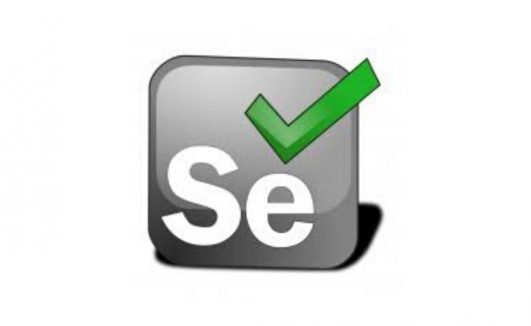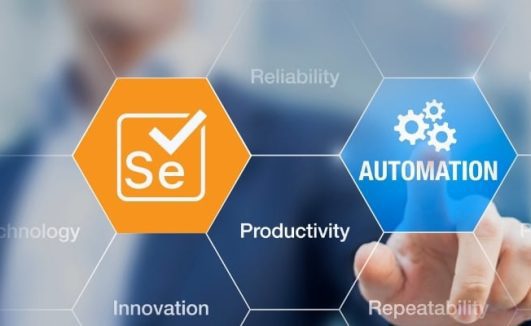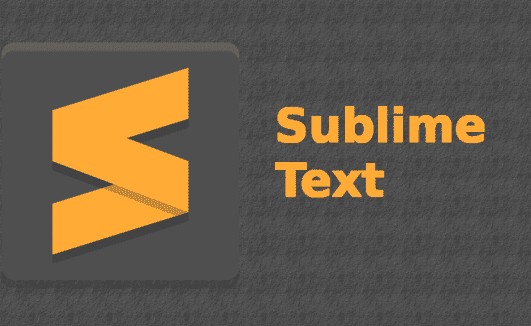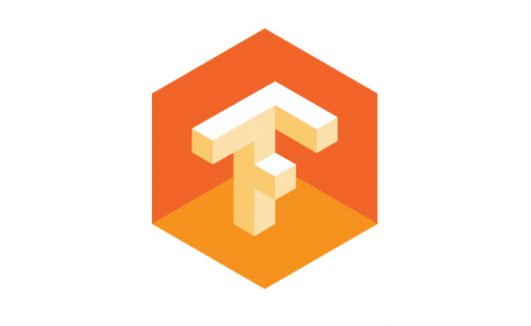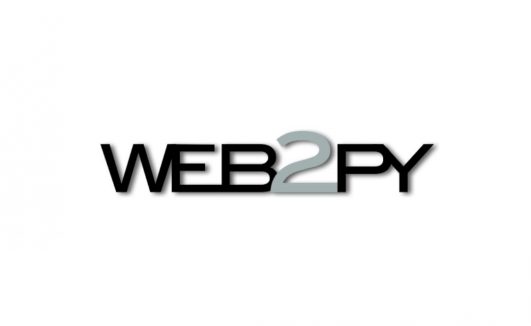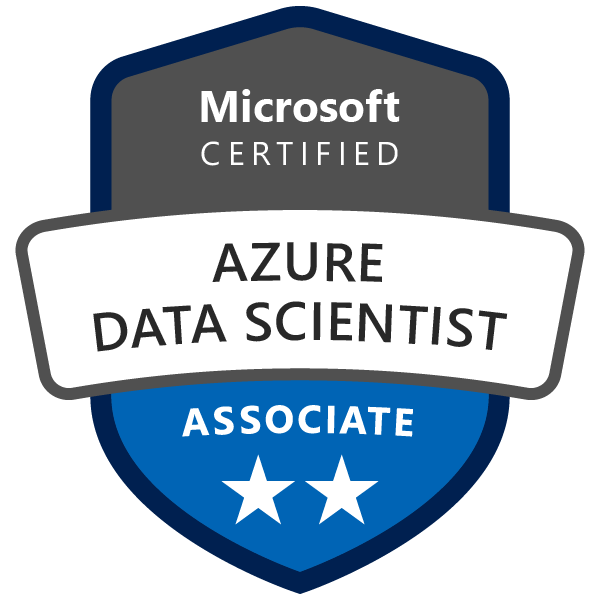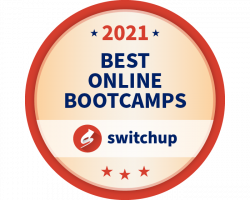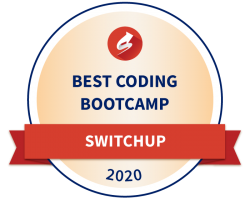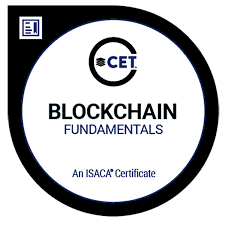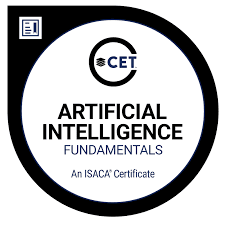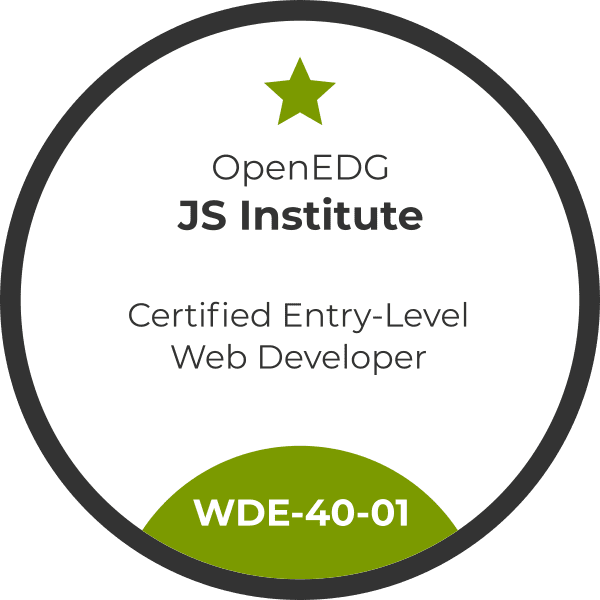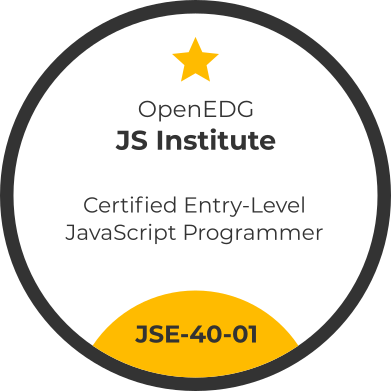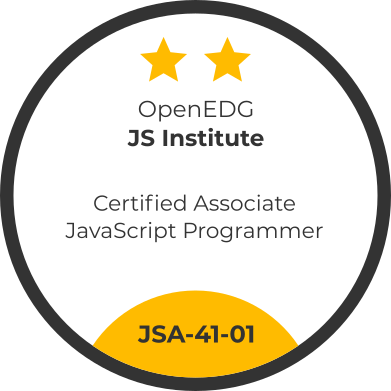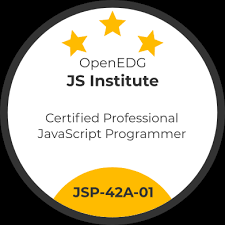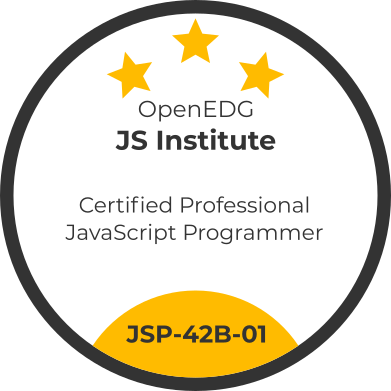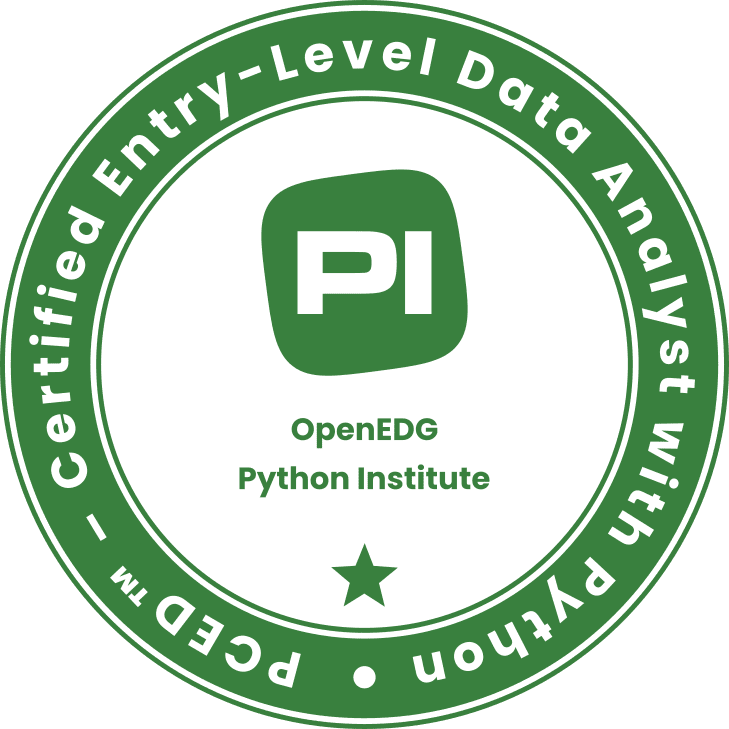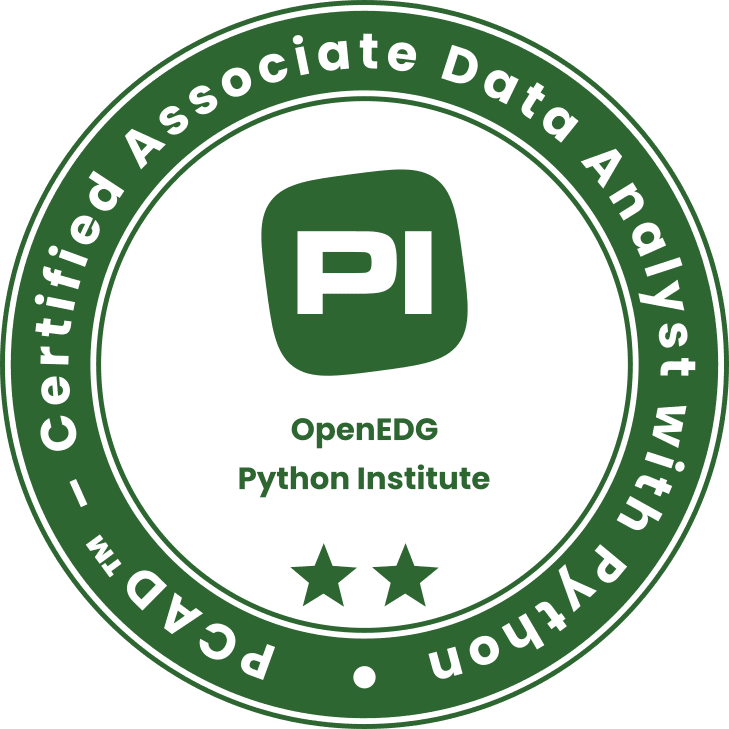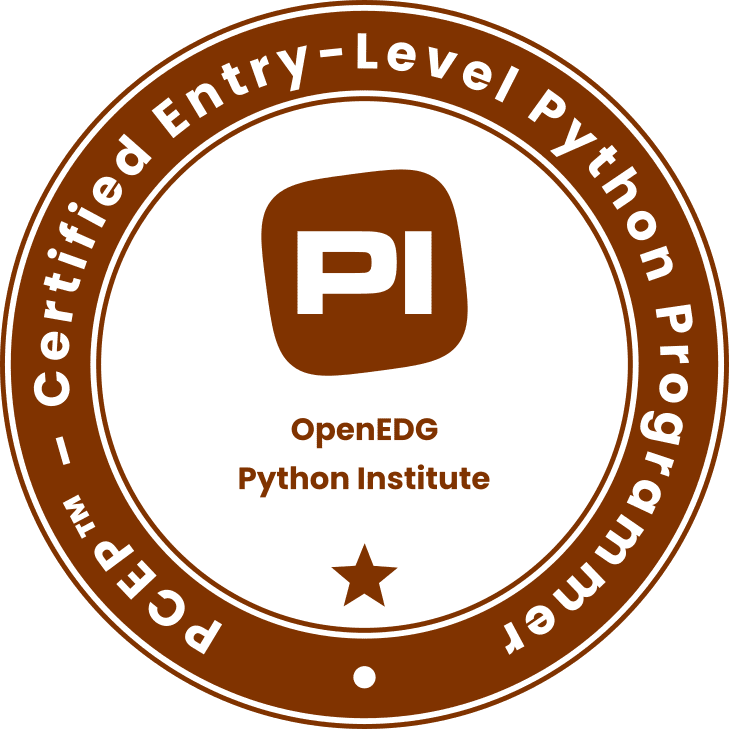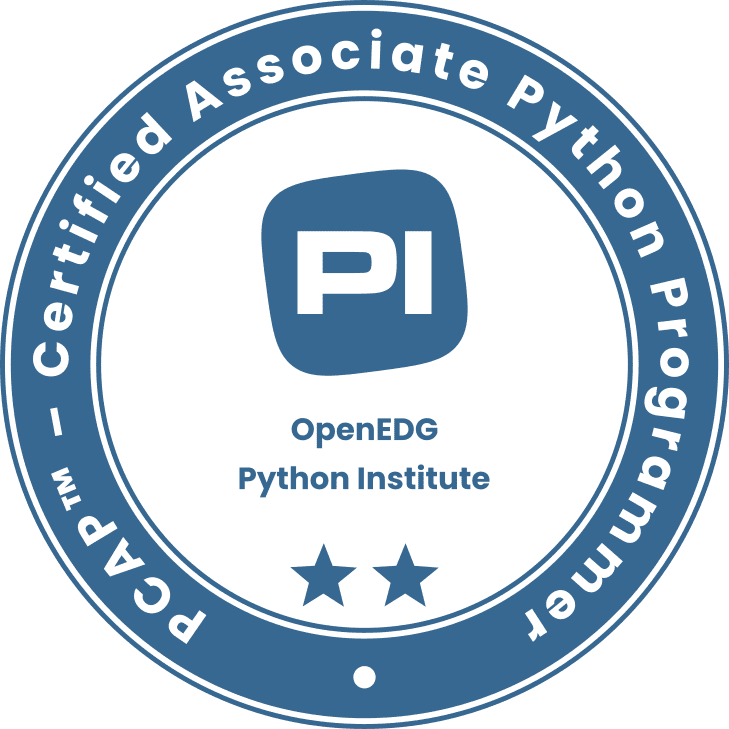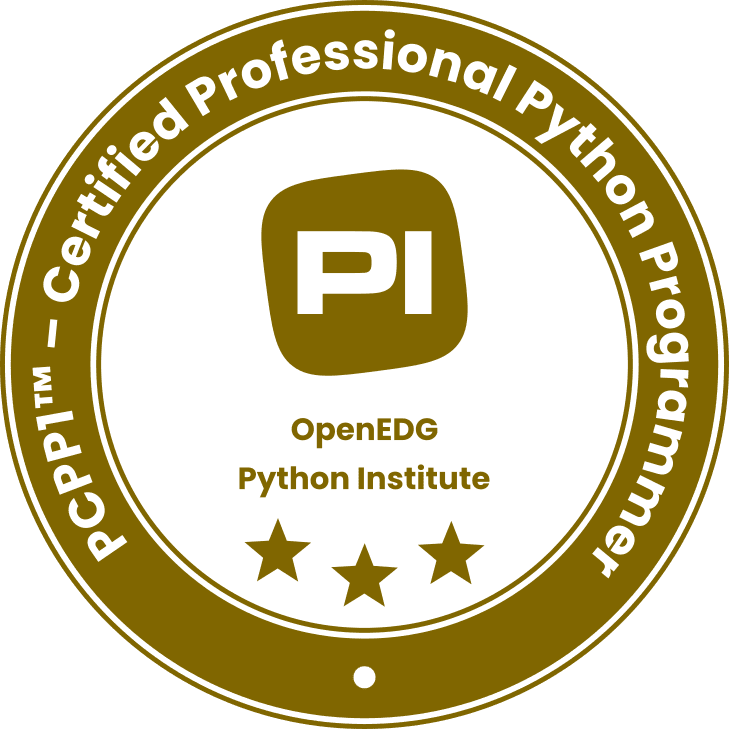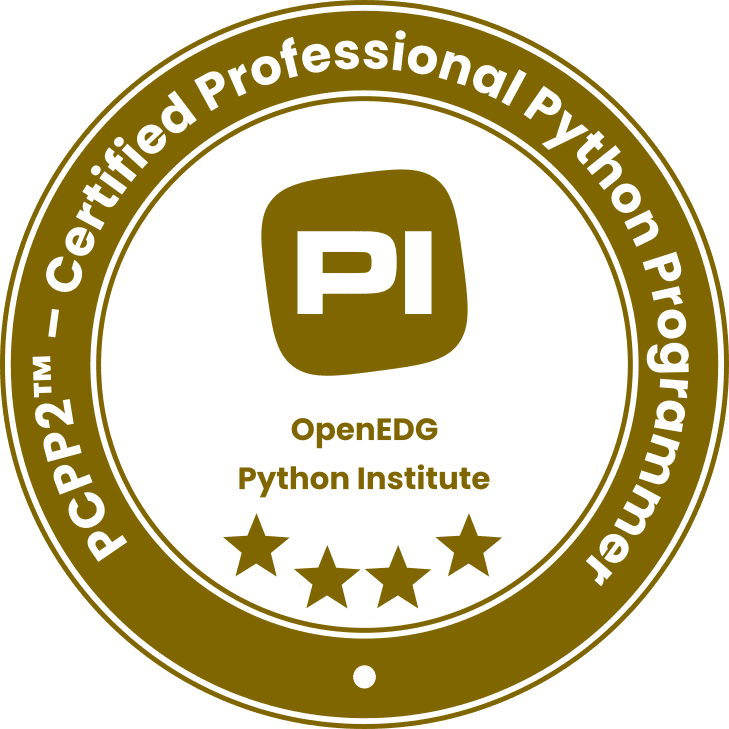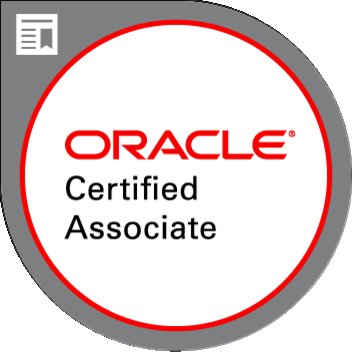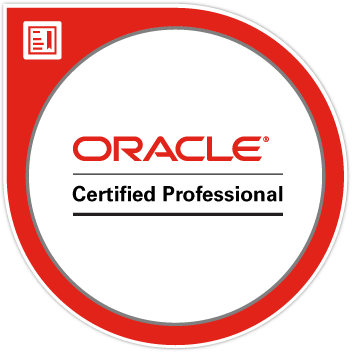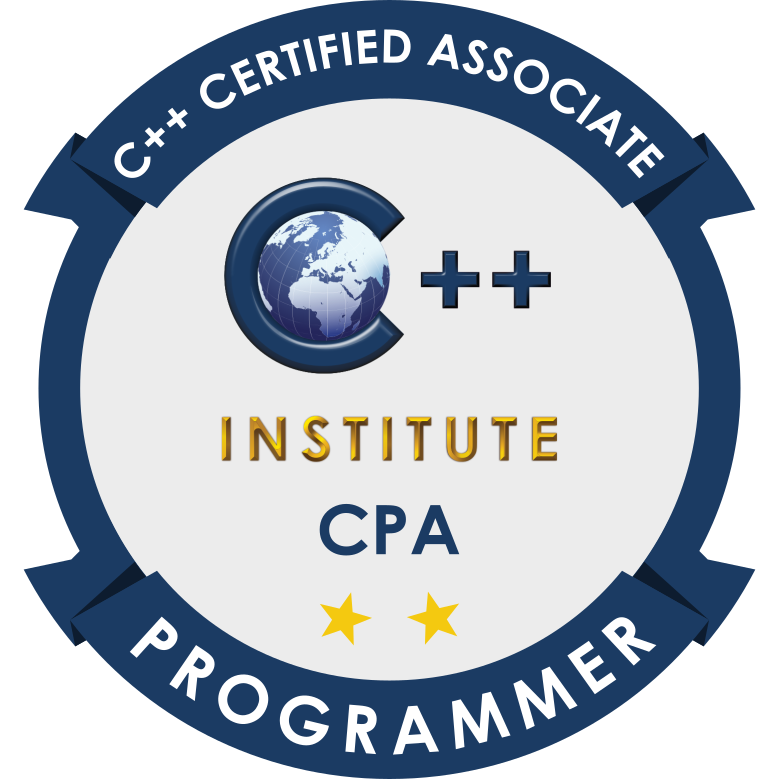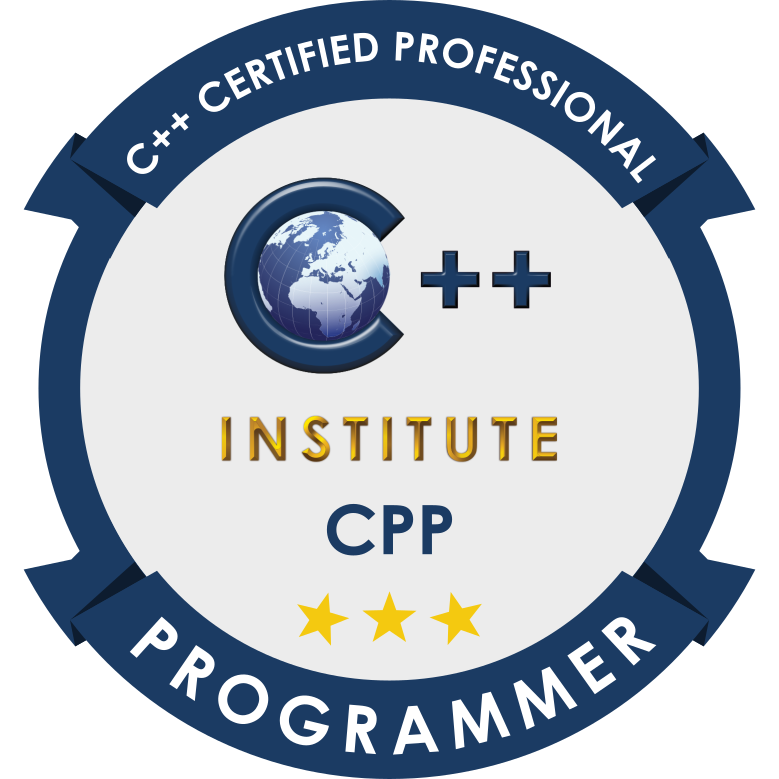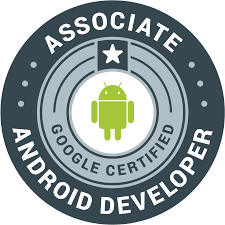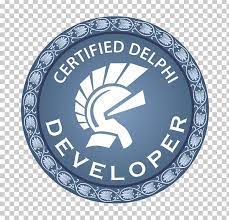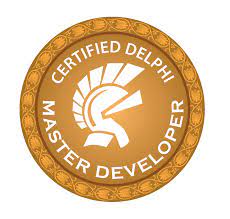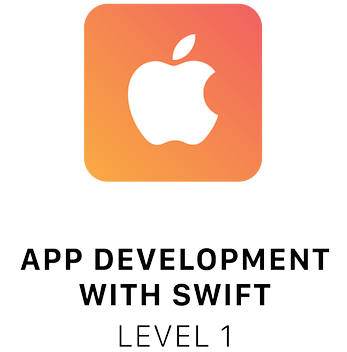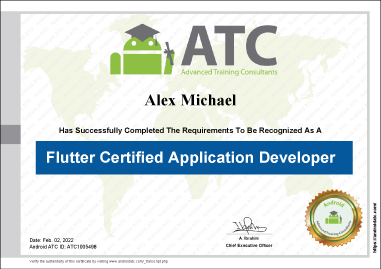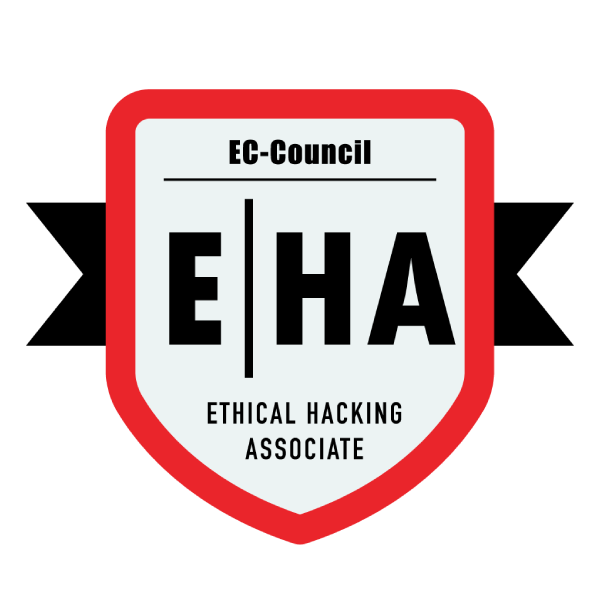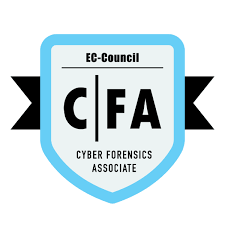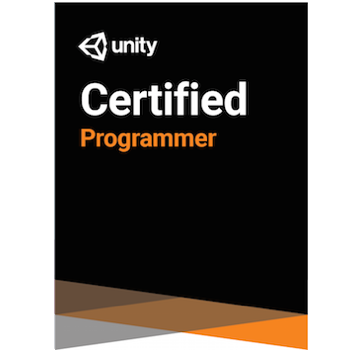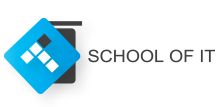Python Courses
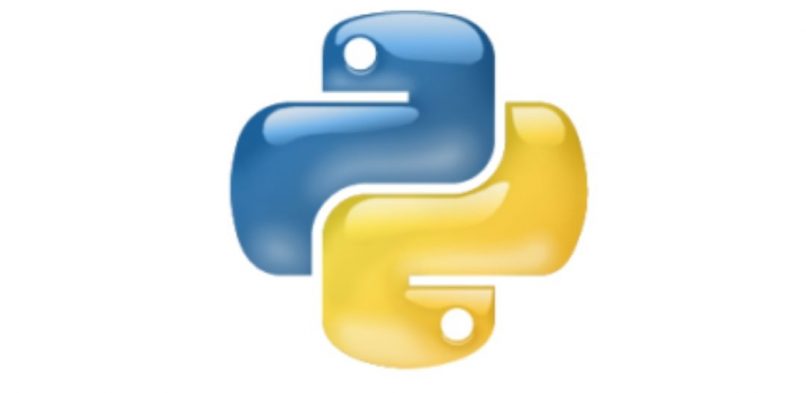
Python Courses
July 13, 2024 No Comments on Python Courses
Get Internationally Accredited & Recognized
Python Courses
Questions to ask yourself about the Python Courses.
Is Python programming in demand? – Yes very HIGHLY. There’s a real demand for python developers in the workplace. Thus creating a massive demand for our python courses. The top 3 jobs in South Africa today is software development (Python and Java). Python is among the most in-demand programming languages on the job market, depending on whose numbers you look at. Python-related job postings on indeed increased 80 percent between 2015 and 2020. The python programming language has been around for nearly 30 years!
Is what I learn relevant and of value? – Most definitely and it’s current, up to date IDE’s (PyCharm, Eclipse) and tools. Furthermore you learn from experienced python developers/lecturers and strong python content.
Can I get a job as a python developer after? – Definitely yes, get a job easier by getting Internationally accredited and recognized by writing your Microsoft or Python.org exam/s:
Python is one of the most popular programming languages used by developers, data scientists, software engineers, and even hackers because of its versatility, flexibility, and object-oriented features. Although a high-level language, it can do complex tasks. Python is easy to learn and has a clean, simple syntax. Thus at School of IT the python programming course is designed for you to learn python practically by building a practical portfolio of relevant industry projects. At School of it we offer:
- An intro python course (for the fundamentals),
- An advanced python course (more intermediate and advanced python concepts)
- A full stack web development course with python
- A Software Development course in python (which includes intro, intermediate and advanced python concepts).
- Software Engineering course in python and 1 other programming language (which includes intro, intermediate and advanced of the 2 programming languages).
- A Data Science course which makes use of python
Learn Python from anywhere!
Overall learn python anytime and anywhere. We have 3 training options and we have award-winning coding courses. In turn identify and implement client side and integration technologies. Thus learn how to create and manage your own python applications.
Part-Time
Fast forward your career in the IT industry with a part-time python courses at School of IT. All in all the Part-time courses allow working professionals to transition into a new skill set while working. In turn at School of IT we are agile and can customize a python course to the individual. Start anytime and choose your hours!
Full Time
Are you ready to start a career in IT? In turn learn to code in python as a full time student at School of IT. Thus beginning your career as a python developer or data scientist. Start anytime and manage your own contact hours with your mentor!
High School
In addition prepare for the future by learn to code in python while you’re still in high school. Have the option to get internationally accredited and recognized before you even finish school!
Corporate
All in all upskill yourself or your company by learning to code while you’re working. Thus no matter where you are, you can upskill yourself and get internationally accredited and recognized in under 6 months!
Here's a course syllabus for a 20-hour introductory Python programming course:
Course Overview
This 20-hour course is designed to introduce beginners to Python programming.
By the end of this course, students will have a solid foundation in Python syntax and programming concepts, and be able to create simple programs and applications.
| Class | Topic |
|---|---|
| Class 1 | Introduction to Python |
| Class 2 | Data types and variables |
| Class 3 | Control flow statements |
| Class 4 | Error Handling |
| Class 5 | Functions |
| Class 6 | Lists and tuples |
| Class 7 | Dictionaries and sets |
| Class 8 | File input/output |
| Class 9 | Object-oriented programming |
| Class 10 | Modules and packages |
| Class 11 | Final project |
Here's a breakdown of each class:
Class 1: Introduction to Python
- Overview of the course and its objectives
- Explanation of the Python programming language and its uses
- Installation and setup of Python on your computer
- Running your first Python program
- Introduction to Python syntax
- Data types in Python: strings, integers, and floats
- Exercise and homework
Class 2: Data types and variables
- Recap of previous class
- Different types of data in Python: lists, tuples, and dictionaries
- Variables in Python and how they work
- Type conversion in Python
- Manipulating strings in Python
- Exercise and homework
Class 3: Control flow statements
- Recap of previous class
- Conditional statements in Python: if, elif, else
- Loops in Python: for and while loops
- Iteration and range function
- The break and continue statements in loops
- Exercise and homework
Class 4: Error Handling
- Recap of previous class
- Introduction to error handling
- Syntax errors
- Using the try-except block to catch and handle exceptions
- Raising exceptions with the raise statement
- Handling multiple exceptions with the except clause
- Common exceptions and their causes (e.g. NameError, TypeError, ValueError)
- Logging errors and exceptions
- Exercise and homework
Class 5: Functions
- Recap of previous class
- Writing functions in Python
- Parameters and arguments in functions
- Return statements in functions
- Local and global variables in Python functions
- Exercise and homework
Class 6: Lists and Tuples
- Recap of previous class
- Creating and modifying lists and tuples in Python
- Indexing and slicing lists and tuples
- List and tuple operations and methods
- Combining data types in Python
- Exercise and homework
Class 7: Dictionaries and Sets
- Recap of previous class
- Creating and modifying dictionaries and sets in Python
- Dictionary and set operations and methods
- Iterating over dictionaries and sets
- Combining data types in Python
- Exercise and homework
Class 8: File Input/Output
- Recap of previous class
- Reading and writing text files in Python
- File modes and permissions in Python
- Using with statements for file input/output
- Working with CSV files in Python
- Exercise and homework
Class 9: Object-oriented Programming
- Recap of previous class
- Introduction to object-oriented programming in Python
- Creating classes and objects in Python
- Class inheritance and polymorphism in Python
- Encapsulation and abstraction in Python
- Exercise and homework
Class 10: Modules and Packages
- Recap of previous class
- Introduction to modules and packages in Python
- Creating modules and importing modules in Python
- Using third-party modules and packages in Python
- Installing and managing packages with pip
- Exercise and homework
Class 11: Final Project
- Recap of previous classes
- Final project assignment and instructions
- Working on the final project in class
- Submission and presentation of final project in class
That's it! I hope this syllabus and breakdown help you in planning your course. Good luck with intro Python programming!
Note: The above syllabus is tentative and may be modified as per the instructor's discretion.
Here is a course syllabus for a 20-hour advanced Python programming course:
Course Overview
This 20-hour course is designed for students who already have a solid understanding of Python programming and want to take their skills to the next level. By the end of this course, students will be able to write complex programs and understand key concepts such as object-oriented programming, advanced data structures, and algorithms.
| Class | Topic |
|---|---|
| Class 1 | Object-Oriented Programming |
| Class 2 | Inheritance |
| Class 3 | Polymorphism |
| Class 4 | Abstract Classes and Interfaces |
| Class 5 | Decorators |
| Class 6 | Generators |
| Class 7 | Advanced Data Structures |
| Class 8 | Recursion |
| Class 9 | Searching and Sorting Algorithms |
| Class 10 | GUI Programming With Tkinter |
| Class 11 | Project: Building a Web Scraper |
Here's a breakdown of each class:
Class 1: Object-Oriented Programming
- Overview of the course and its objectives
- Review of basic Python syntax
- Introduction to object-oriented programming
- Classes and objects
- Properties and methods
- Access modifiers
- Exercise and homework
Class 2: Inheritance
- Recap of previous class
- Understanding inheritance
- Base and derived classes
- Overriding methods
- Multiple inheritance
- Method resolution order
- Exercise and homework
Class 3: Polymorphism
- Recap of previous class
- Understanding polymorphism
- Duck typing
- Operator overloading
- Abstract classes
- Exercise and homework
Class 4: Abstract Classes and Interfaces
- Recap of previous class
- Abstract classes and interfaces
- Defining abstract classes and interfaces
- Implementing abstract classes and interfaces
- Multiple inheritance with abstract classes and interfaces
- Exercise and homework
Class 5: Decorators
- Recap of previous class
- Introduction to decorators
- Function decorators
- Class decorators
- Method decorators
- Nested decorators
- Exercise and homework
Class 6: Generators
- Recap of previous class
- Understanding generators
- Generator functions
- Generator expressions
- Coroutines
- Synchronous and asynchronous programming
- Exercise and homework
Class 7: Advanced Data Structures
- Recap of previous class
- Advanced data structures in Python
- Stacks and queues
- Heaps and priority queues
- Trees and graphs
- Red-black trees
- Exercise and homework
Class 8: Recursion
- Recap of previous class
- Understanding recursion
- Recursive functions
- Tail recursion
- Recursive data structures
- Handling recursion errors
- Exercise and homework
Class 9: Searching and Sorting Algorithms
- Recap of previous class
- Searching algorithms in Python
- Linear search
- Binary search
- Hash tables
- Sorting algorithms in Python
- Bubble sort
- Selection sort
- Insertion sort
- Quick sort
- Merge sort
- Exercise and homework
Class 10: GUI Programming with Tkinter
- Recap of previous class
- Understanding layout management in Tkinter
- Understanding event handling in Tkinter
- Binding events to widgets
- Creating your own gui programme
- Exercise and homework
Class 11: Project: Building a Web Scraper
- Recap of previous classes
- Assignment of a project to build a web scraper
- Working on the project in class
- Submission and presentation of the project in class
That's it! I hope this syllabus and breakdown help you in planning your course. Good luck with your advanced Python programming!
Note: The above syllabus is tentative and may be modified as per the instructor's discretion.
By the end of the Software Development course students will have usable knowledge of the following:
- Intro Python Course objectives.
- Intermediate Python Course objectives.
- Advanced Python Course objectives.
- Project & test.
Note: The above syllabus is tentative and may be modified as per the instructor's discretion.
By the end of the Software Engineering course (Python + 1 other programming language of choice), students will have usable knowledge of the following:
- Intro Python Course objectives.
- Intermediate Python Course objectives.
- Advanced Python Course objectives.
- Project & test.
- Intro of programming language 2 (your choice) fundamentals
- Intermediate programming language 2.
- Advanced programming language 2 objectives.
- Project & test.
Note: The above syllabus is tentative and may be modified as per the instructor's discretion.
By the end of the Full Stack Web Development course with python, students will have usable knowledge of the following:
- Understand the Fundamentals of web design
- Be able to understand classes coupled with Objects.
- Understand of datatypes together with operators.
- Understand variable declaration including initialization.
- Learn Methods, functions coupled with sequential code.
- Decision making: If statements not to mention switch cases.
- Learn about Loops, namely a do while, for loop and while loop.
- How to use Django and Python Fundamentals.
- Create Websites using Django Framework and best development principals & standards
- IDE's, applets coupled with publishing applications.
- Including HTML, CSS, JavaScript and Web Services.
Note: The above syllabus is tentative and may be modified as per the instructor's discretion.
By the end of the Data Science course, students will have usable knowledge of the following:
- Apply statistical methods to data
- Be able to understand Python to explore and transform data.
- Create,validate machine learning models with Azure Machine Learning.
- Thoroughly Understand Python code to build machine learning models.
- Apply data science techniques to common scenarios.
- Implement a machine learning solution for a given data problem.
- Learn advanced Python and Data Analysis to implement computer science algorithms.
- Implement a BioInformatics and natural language processing.
- Acquire the skills needed to find structure in data and how to use the python libraries.
- Matplotlib.
- SciKit Learn.
- NumPy.
- NLTK,
Note: The above syllabus is tentative and may be modified as per the instructor's discretion.
- An Intro to programming course price is R13900 for 20 hours.
- Advanced programming course price is R15900 for 20 hours.
- A Software Development course price is R28800 for 2 months/40 hours.
- A Software Engineering course price is R43600 for 4 months/80 hours.
- A Full Stack Web Development course with python, price is R28800 for 3 months/60 hours.
- A Data Science course with python or R, price is R43600 for 4 months/80 hours.
Prerequisites
No prior requirements needed, maths is recommended.Who Should Attend this Programming Training Course?
The intro course is intended for programmers who need to write or maintain scripts in Python. These courses are suitable for beginner programmers who may have little, to no in-depth knowledge of programming. All the programming courses start from beginner level (accept the advanced python course)Python Programming Course Overview
Python is one of the most popular programming languages used by developers, data scientists, software engineers, and even hackers because of its versatility, flexibility, and object-oriented features. Although a high-level language, it can do complex tasks. Python is easy to learn and has a clean, simple syntax.What's included in this Programming Training Course?:
Courseware- Ebooks
- Professional notes
- IDE -Pycharm or lastest ide
- International exam resources and how to book the international exam/s.
- Interactive software
- Proposed Schedule
By the end of the Full Stack course students will have usable knowledge of the following:
- Understand the Fundamentals of web design
- Be able to understand classes coupled with Objects.
- Understand of datatypes together with operators.
- Understand variable declaration including initialization.
- Learn Methods, functions coupled with sequential code.
- Decision making: If statements not to mention switch cases.
- Learn about Loops, namely a do while, for loop and while loop.
- How to use Django and Python Fundamentals.
- Create Websites using Django Framework and best development principals & standards
- IDE’s, applets coupled with publishing applications.
- Including HTML, CSS, JavaScript and Web Services.
By the end of the Data Science course students will have usable knowledge of the following:
- Apply statistical methods to data
- Be able to understand Python to explore and transform data.
- Create,validate machine learning models with Azure Machine Learning.
- Thoroughly Understand Python code to build machine learning models.
- Apply data science techniques to common scenarios.
- Implement a machine learning solution for a given data problem.
- Learn advanced Python and Data Analysis to implement computer science algorithms.
- Implement a BioInformatics and natural language processing.
- Acquire the skills needed to find structure in data and how to use the python libraries.
- Matplotlib.
- SciKit Learn.
- NumPy.
- NLTK,
Jobs Options
The career prospects for Python programmers are excellent and high in demand. Python is everywhere: on all platforms and devices and in all countries around the world!
- Junior Programmer
- Python Developer
- Full Stack Web Developer
- Data Scientist
- Software Developer
- Software Engineer
- App Developer
- Systems Architect
